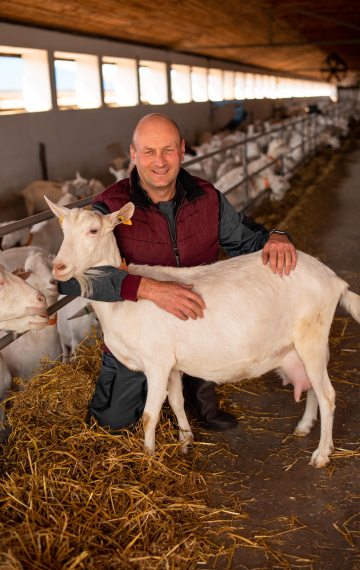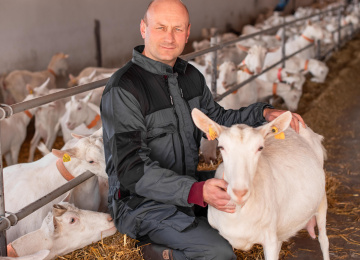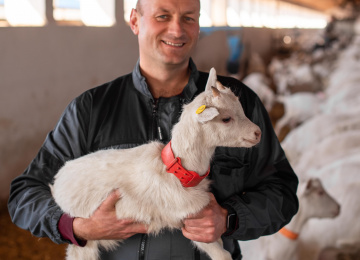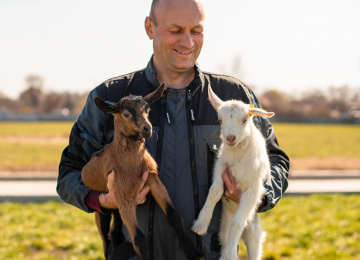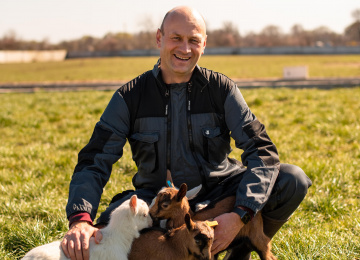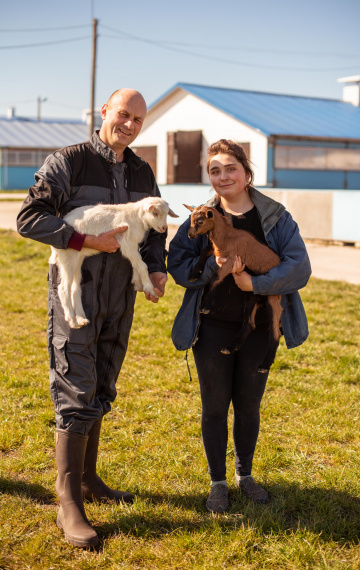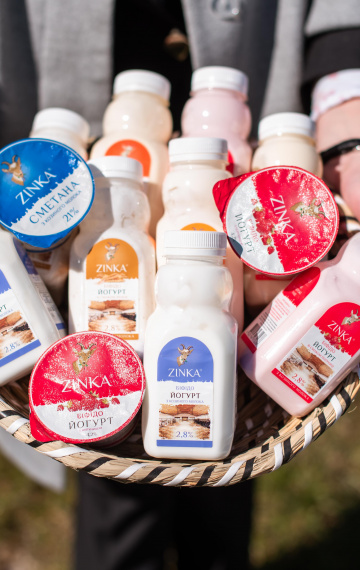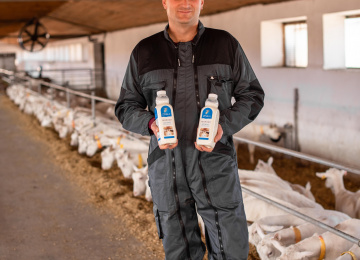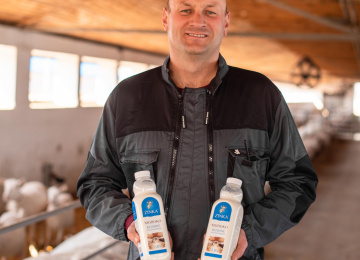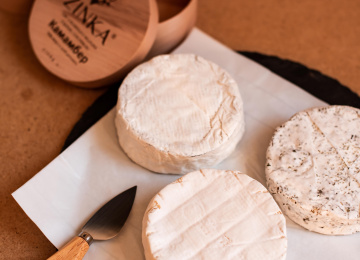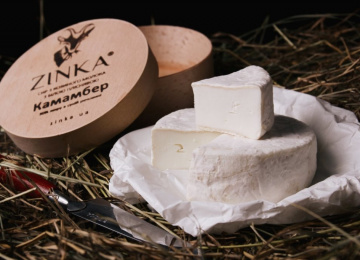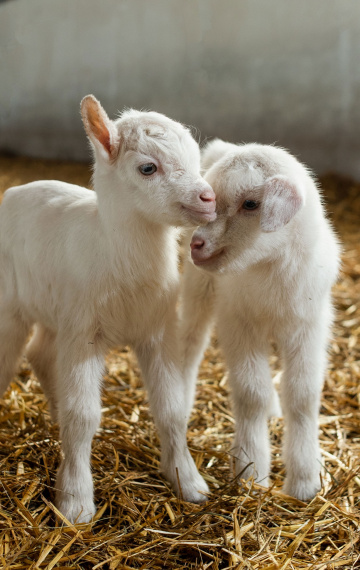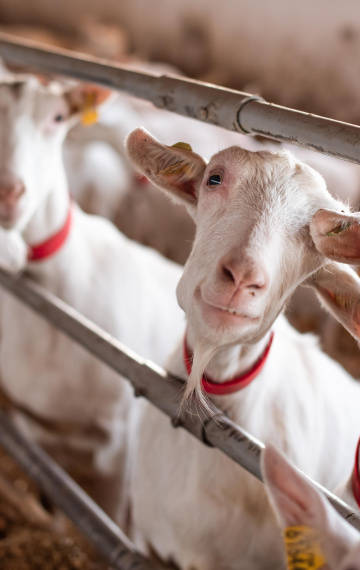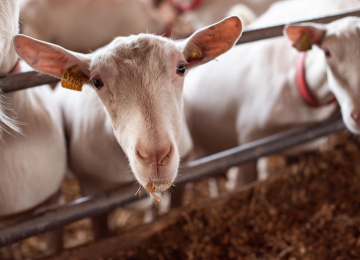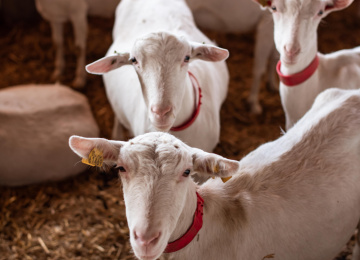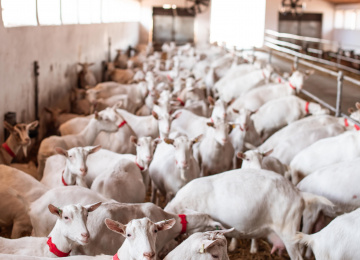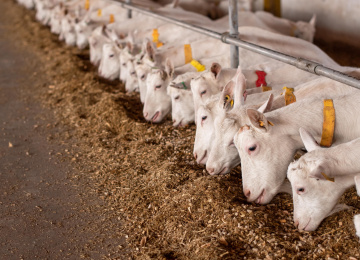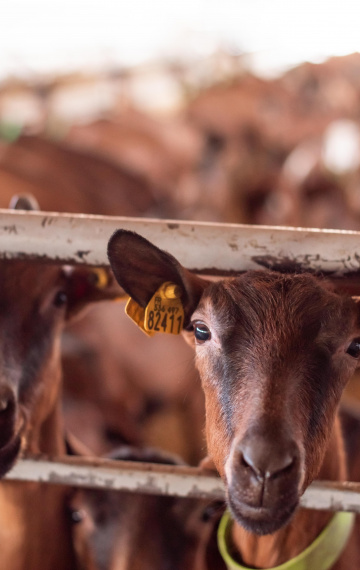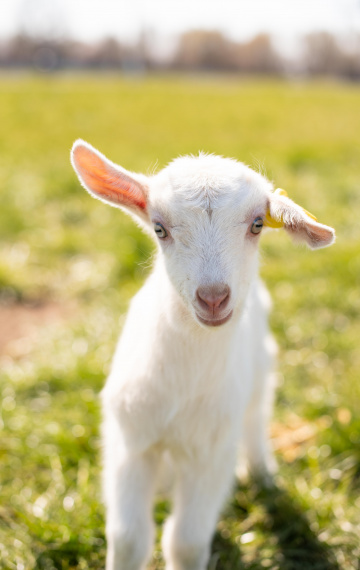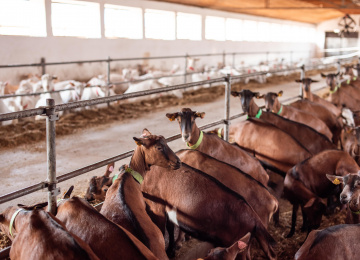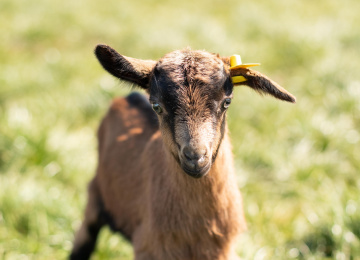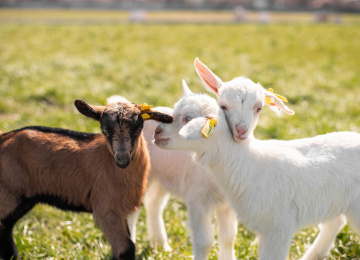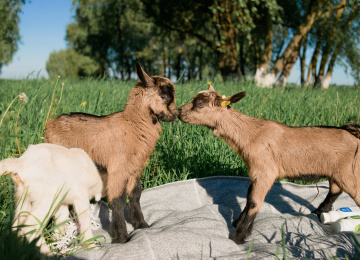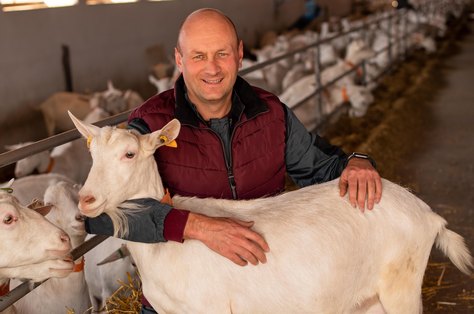
“Ukrainian farmers have learned how to make cheeses that are just as good as European ones”, Vasyl Tsvyk says with confidence. He is the owner of the farming enterprise Tetiana 2011, located approximately one hundred kilometers from Kyiv.
His business’s profile includes crop farming, horticulture and milk production – and it would be similar to hundreds of identical farms if not for one peculiarity. His dozens of varieties of cheese and fermented dairy products are made of goat milk. It is very unusual for Ukraine.
The brand “Zinka” is widely marketed in well-known supermarket chains of the country. “Zinka” comes from a typical name Ukrainians give to goats. Despite the old-fashioned roots of its name, the business is more connected to modern Europe and its experience in industrial goat farming rather than to the Ukrainian past.
And this is another thing that makes it different.
There are 2,700 French heritage Alpine and Saanen goats, with a French dairy expert working among process specialists and consultants. The enterprise participates in goat farming expos in France and is quite famous in its industry in Europe.
“Goat farming of large size is new for Ukraine. There is no consumer culture, or at least it is rather poor. Moreover, there is a lack of field experts,” Vasyl says. “Six years ago, when we were just starting, we had to search for dairy hands and send them to France for three-month internships. Our equipment is from Switzerland, our goats are from France, and we needed to know how to use the best techniques of European countries.”
The business combines European dairy raising methods with the advantages that come with the rich Ukrainian land and its people. Vasyl Tsvyk has taken much from Europe while at the same time adapting that experience and knowledge to the Ukrainian environment. Therefore, he has many great insights into how French and Ukrainian animal husbandry compare, which makes him an unusual authority in Ukrainian goat marketing.
For instance, he says that it is hard for a French farmer to understand why someone would produce 15 types of fermented dairy products and 20 types of cheese. In France, even if a farmer manufactures dairy products, he or she usually puts only two or three types of cheese, milk and yogurt on the market.
“And here everything is in a Ukrainian way – there is a mill here, there is a cheese factory here, and there is something else there,” Vasyl says jokingly about how his operation contrasts with the more homogenized French organizational style. He adds, “We already see the ‘leaders’ of our products. It is possible that in the future we will also keep only two or three types of cheese to sell on the market. But today, when consumer behaviour for goat milk products is still being developed, we need to provide a wide variety of products so that our customers can decide what they like the best.”
It is also important to consider the taste preferences of Ukrainian and French consumers. To begin with, there are differences in how people perceive goat milk – there are certain preconceptions regarding its smell in Ukraine which hardly exist in Europe. Coping with these obstacles and popularising this wholesome product are currently the industry’s main marketing challenges.
“When camembert has a strong ammonia smell, our consumers turn their noses up claiming that the product is spoiled. At the same time a French person would say – this is just the taste I have been looking for!” Tsvyk explains.
Last year, the business enterprise got a loan of UAH 10.7 million (EUR 336,710) from Oschadbank under the EU4Business Initiative of the European Union. The EU and EIB Group support Ukrainian small- and medium-sized enterprises (SMEs) through these intermediated loans and/or guarantees provided to local banks. This is one of the priorities of the EIB’s activities in Ukraine, and around EUR 1 billion have been invested in the Ukrainian private sector over recent years.
“These loans were in great demand due to their attractive conditions compared to conventional loans,” says Natalia Butkova-Vitvitska, head of Oschadbank’s Department of Micro-sized, Small and Medium Enterprises. “The cost of funds is of great importance for micro-sized and small enterprises to make a decision on applying for a loan. And thanks to our cooperation with the EIB Group, we have managed to attract more clients and to grow our loan portfolio.”
“The EIB Group signed a partial portfolio guarantee agreement with Oschadbank in order to support EUR 50 million of lending to SMEs in Ukraine under the EU4Business initiative. This agreement enables Oschadbank to facilitate access to finance for local SMEs by providing a 70% guarantee on each loan and subsequently extending financing on favourable terms, including with reduced collateral requirements,” commented Martins Jansons, Head of Unit of Structured Finance at the EIF.
In addition to Oschadbank, the EIB’s partner banks in Ukraine under the EU4Business initiative include Raiffeisen, ProCredit Bank and Ukrgasbank.
“The European Union is committed to enhancing private sector development and growth in Ukraine. Our support for enterprises like Tetiana 2011 and dedicated owners such as Vasyl serves as an excellent example of how a passion for work and EU support can bring real changes to the Ukrainian economy. We are happy that through our EU4Business initiative and together with our partners from the EIB Group, we can support Ukrainian small and medium enterprises and contribute to both economic growth in Ukraine and stronger economic ties between Ukraine and the EU,” says Frederik Coene, Head of Cooperation at the EU Delegation to Ukraine.
The European experience of farming enterprise Tetiana 2011 is evident in one more approach – their product meets safety and quality standards.
“From the very beginning we agreed, first of all, to make safe and high quality products rather than to simply seek profits,” the owner says. “For instance, in terms of quality, there are no sugars added, other food additives with ‘E-Numbers’ or emulsifiers.”
The enterprise currently employs more than 80 people. It is a family-run business – another way it follows European tradition. Vasyl’s mother and father also work there, and his daughter comes to help during holidays.
“When it comes to goat farming, we are leaders,” the owner of Tetiana 2011 says. “We believe we rank first in milk yield as well as in the volume of output in Ukraine.”
In 2019, 1,200 tonnes of goat milk were produced in Ukraine, while Tetiana 2011 produced 700 tonnes. In 2020, they produced close to one thousand tonnes. Their plans for the future are very ambitious in all three directions – production, processing and sales. Within the next six to seven years, the business is planning to reach 40 tonnes of milk produced per day. They also hope to begin exports to the Middle East.

